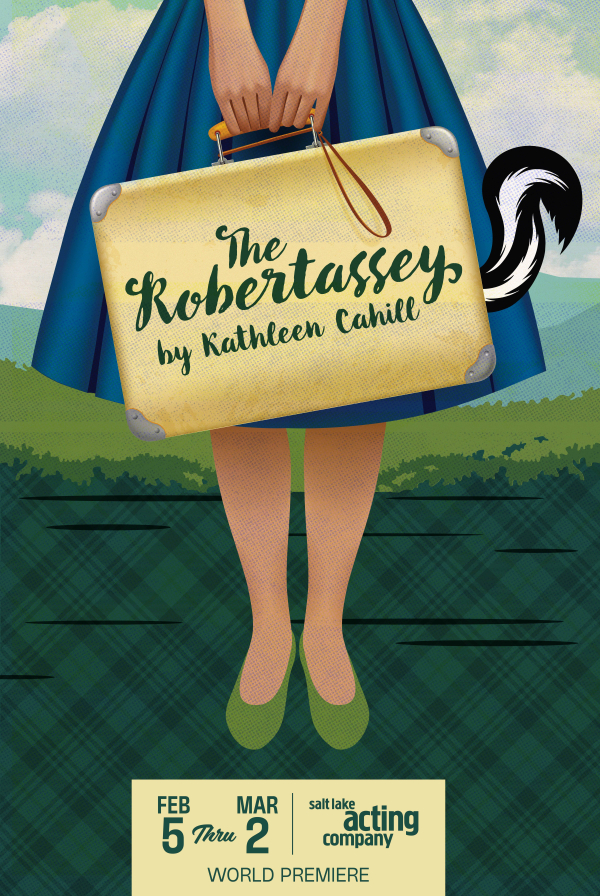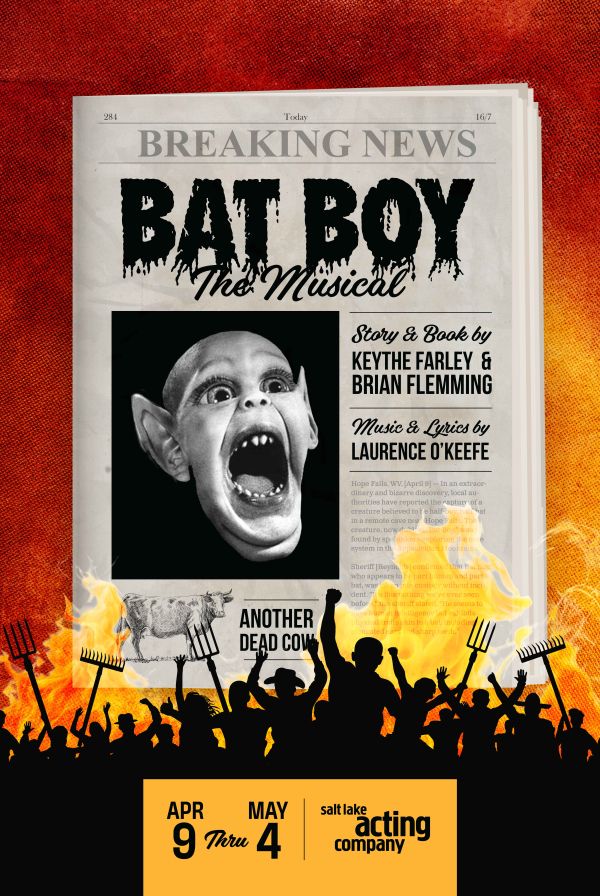By Barbara M. Bannon Special to The Tribune | First Published Oct 19 2016 04:03PM
The essence of theater is collaboration. We've all heard that before, but occasionally a production exemplifies it so perfectly that you want to bottle it for drama students. Peggy Battin wrote a story; Anne Cullimore Decker read it, was impressed and gave it to local playwright Julie Jensen; Jensen wrote a play and enlisted "Mockingbird" collaborator Tracy Callahan to direct it. The result, "Winter," is making its world premiere at Salt Lake Acting Company in a production that promises to be one of the best of the season.
The subject couldn't be timelier. Annis, Decker's character, is having a crisis; she might ironically call it "a matter of life and death" because she loves to play with language. Strings of connected words fall from her tongue. When husband Robeck (Bob Nelson) says she is "obsessing," she counters with "compressing, distressing, regressing," and the name Calhoun elicits "balloon, baboon, buffoon, lampoon, raccoon." But lately "I'm losing it. And it frightens me," she tells Robeck. "Big chunks of my mind fall away."
Years earlier, Annis and Robeck made a pact: When the right time came, they would exit life together. The challenge comes in determining when that time is. Although retired, Robeck is still actively doing research, trying to verify "the generous gene" in mice. "We're at different stages of our lives," he tells Annis. "I want to finish my work." But Annis' lapses are becoming more frequent, and she has decided, "I'm going out before I lose my dignity."
Their two sons have conflicting opinions about the situation. Roddy (S.A. Rogers) wants to move their parents into a retirement community right away; Evan (Justin Bruse) thinks they should wait and see what happens. "Your idea of helping is to run things," he tells Roddy. "If you move them, you'll destroy the only order they've ever known."
Granddaughter LD (Andrea Peterson) is devoted to her grandmother, who largely raised her, but struggles with her own issues of loss, caused by her mother, Leah's, suicide years before. "She had no right to leave me," she tells Annis. "When she died, I understood death as the other half of a breath," Annis reflects.
Jensen's writing is as economical and tight as a drum, and Callahan's focused direction unerringly keys off its momentum. They've created a visceral way to put us into Annis' head when she has spells. The lights flicker and dim, discordant music intrudes, soft snow falls, the walls of the set peel away, and the surrounding birch trees invade. We literally feel what Annis is experiencing.
Decker couldn't be better at capturing Annis' constant mood swings: her bewilderment and absent expression during her spells, her clever method of masking them, her astute way of tuning in, then playing off others, and her unwavering determination to choose what's right for her. As Robeck, Nelson's preoccupied, detached air is balanced by genuine love and concern for his wife; he simply can't cope with what's happening. Rogers and Bruse are able and active adversaries as their sons; Rogers' type A, take-charge attitude is fated to clash with Bruse's laid-back, low-key approach. Peterson's LD juggles flower-child flakiness with support and understanding for her grandmother.
Dennis Hassan's detailed, academic-looking living room set is appropriately cluttered, reflecting the distraction and disorganization in its owners' lives. James Craig's muted lighting, Nancy Hills' relaxed contemporary costumes, and the mix of classical and discordant music in Cynthia Kehr Rees' sound design combine fluidly in setting the scene.
As the population age and enter the winter of their lives, end-of-life questions become more relevant and controversial. Should people be able to control when and how they die? What are the ethical and religious implications? "Winter" offers no easy answers, but its audience will leave the theater challenged by the choices.














